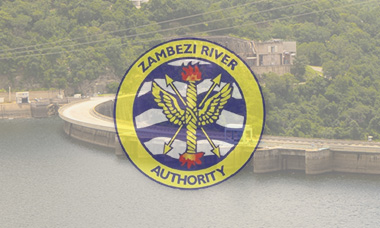
Lusaka, 18th January 2022 – The Zambezi River Authority (the Authority) hereby updates the public regarding the water situation in the Kariba Catchment and lake levels at Kariba
Dam. This is the first update for the year 2022.
2021/2022 Rainfall Season Outlook
The 25th meeting of regional weather and climate experts, the Southern Africa Climate Outlook Forum (SARCOF-25), and the Local Meteorological Departments of the Republics of Zambia and Zimbabwe all projected Normal to Above Normal rainfall for most of the Southern Africa Region. The rainfall season was projected to commence by October 2021 and progress into March 2022. However, the rainfall season only started in earnest late December 2021, resulting in reduced inflows into Lake Kariba, thus the lower lake levels recorded during the period October 2021 to early January 2022.
Lake Levels Recorded at Kariba
As per the historical hydrological trend but compounded by the delayed onset of the 2021/2022 rainfall season, the Lake levels receded during the last quarter of 2021 into the first week of January 2022. However, owing to the recent steady increase in rainfall activity and associated increase in Zambezi River flows as well as the resultant Lake Kariba inflow, the Lake Level rose from 478.23m recorded on 7th January 2022 to 478.47m recorded on 17th January 2022, positioning the lake 2.97 meters above the Minimum Operating Level (MOL) of 475. 50m.This translates into 13.43 Billion Cubic Meters (BCM) or 21% of stored usable water or live storage. On the same date last year, the Lake level was slightly higher at 478.63m with 14.17 BCM or 21.87% of usable storage, with the lake level being 3m above the MOL.
Water Allocation for Power Generation at Kariba Dam for the Year 2022
The Authority allocated 45 BCM to be shared equally between Zesco Limited and Zimbabwe Power Company for their respective power generation operations at Kariba during 2022. The allocation was, among other factors, informed by the predictions of Normal to Above Normal Rainfall provided by the regional weather and climate experts mentioned above but will be subject to a downward review where the rainfall season turns out to be a drought period to conserve the stored usable water and support power generation operations into 2023.
Owing to the delayed onset of the 2021/2022 rainfall season, the Authority has cautioned the two Power Utilities not to generate at higher levels (currently 550Mw for each Kariba power station) than that associated with the water allocation made for 2022. The Authority is now preparing to undertake the hydrological review for the first quarter of 2022 that will further inform the water allocation for power generation operations at Kariba.
Impact of the Implementation of the Kariba Dam Rehabilitation Project on Generation Capacity at Kariba
During the last quarter of 2021, the Authority requestedZescoLimited andZimbabwe Power Company (ZPC)to reduce Power Generationlevelsfor six (6) hoursonly,ona fewselected dates to facilitatecoffer dam construction works under the plunge pool reshaping sub-project of the Kariba Dam Rehabilitation Project (KDRP). In doing so, the utilities wereexpected to implementmeasures that would mitigate the resulting reduction in power generation levels at Kariba. The specific works under the pool reshaping sub-project that called for this need have since advanced and are due to be completed by 25thJanuary 2022, thereby ending the Authority’s request to the two power generation utilities.
Going forward, the remaining works of the KDRP will notresult in the two utilities seeing reduced generation levels at their respective Kariba power stations. The KDRP is scheduled to becompletedby2024and is aimed at assuring the long-term safety and reliability of Kariba dam.
About the Zambezi River Authority
The Zambezi River Authority is a Bi-National organization mandatedto contribute to the economic, industrial, and social development of the Republics of Zambia and Zimbabwe by obtaining the greatest possible benefits from the natural advantages offered bythe waters of the Zambezi River (between Zambia and Zimbabwe) through the most economical and effective means of providing water for generation of electricity and for other purposes which the Contracting States may decide upon.

